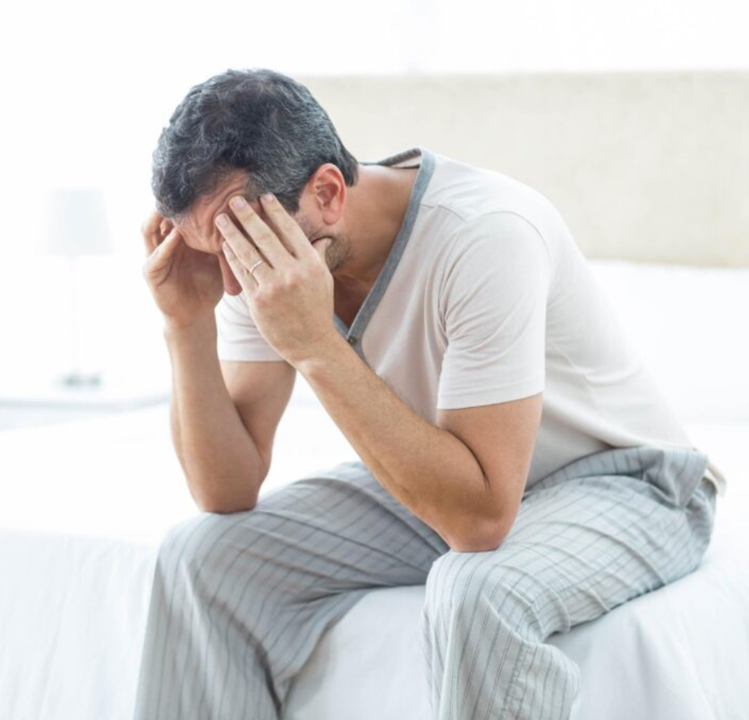ABSENT ORGASM (ANORGASMIA)
PROCEDURES AND EFFECTIVENESS
What is anorgasmia?
Anorgasmia is the inability or inability to orgasm even after having pleasurable and satisfying sex. It also denotes having less frequent or stronger orgasms than you would prefer. It’s a type of gender-neutral sexual dysfunction. It can negatively impact your mental state, leading to worry and unease, and potentially disrupting your interpersonal connections. Another name for anorgasmia is orgasmic dysfunction.
Orgasms, which are sensations of pleasure or sexual excitement that follow arousal, are also referred to as sexual climaxing. It could involve uncontrollable physical motions and feel like a release. Their length and intensity can change. To experience an orgasm, some people require more sexual stimulation, while others require less.
You can still experience pleasure and have a desire for sex when you have anorgasmia. But because you are unable to experience an orgasm, you could experience mental pain or agony. Your doctor can suggest a course of treatment and assist in identifying the underlying cause of anorgasmia.
Anorgasmia in women or people assigned female at birth (AFAB)
Anorgasmia in women or people assigned female at birth (also called female orgasmic disorder) is classified into four types:
Main (or permanent): You’ve never experienced an orgasm.
Secondary (or acquired): You can’t experience orgasms today, but you used to be able to. This is typical throughout menopause.
Situational: Only certain circumstances, such as while masturbating (self-stimulation), can cause an orgasm.
General: No matter what, even when you’re aroused or excited, you never experience an orgasm.
Orgasmic problems are more common in older adults, however they can strike anyone at any age. Of women or people AFAB, up to 15% say they have never experienced an orgasm.
What are the symptoms of anorgasmia?
The primary sign of anorgasmia is failure to reach the orgasm (sexual climax). A delayed climax (an orgasm that occurs slowly) or a lack of fulfilment following a sexual climax are other signs.
What causes anorgasmia?
Several things can make it hard to experience an orgasm. These variables may be medical (pertaining to an illness or condition), psychological, emotional, or physical. Many times, a number of circumstances come together to make orgasm difficult, and it can be challenging to identify the underlying cause or causes).
Medical and physical causes
- Age (especially women or people AFAB in menopause).
- Medical conditions like multiple sclerosis (MS).
- Medications, especially selective serotonin reuptake inhibitors (SSRIs).
- Surgeries on your genitals and organs near or connected to your reproductive system.
- Complications from cancer or radiation therapy.
- Pelvic floor dysfunction or pelvic trauma.
- Reliance on masturbation (you find that more satisfying).
- Hormonal conditions.
- Congenital disorders (conditions you’re born with) of the vagina or penis.
Psychological causes
- Depression, stress or anxiety.
- Previous sexual abuse or assault.
- Cultural or religious factors.
- Being shy or unable to express yourself through sex.
- Lack of confidence.
- Relationship, trust or intimacy issues with your partner.
ONLINE CONSULTATION
We use the latest in reproductive technology to give you the best possible chance of success.
ADVANCED TECHNOLOGY
We use the latest in reproductive technology ( ART) to give you the best possible chance of success.
PERSONALIZED CARE
We treat each patient as an individual, for best possible evaluations, diagnoses, and treatments.
PROVEN SUCCESS RATE
We are the best in the nation, and families travel from all over the world to receive their care.
FACE-TO-FACE DISCUSS
The smart and convenient way to manage your health. Speak face-to-face with a doctor anytime.
PEACE OF MIND
Independent industry surveys place our client satisfaction rate at 97% with a great Peace of mind.


How is anorgasmia diagnosed?
It depends on the underlying cause. There is no one therapy plan that works for every patient; instead, a variety of strategies may be used. Some treatments for anorgasmia include:
- Changing medications.
- Treating any underlying health issues.
- Learning self-stimulation (masturbation) techniques.
- Counseling or psychotherapy to address relationship issues, mental health conditions or past sexual trauma.
- Sex therapy to address sexual needs or underlying factors preventing climax.
- Boosting sensitivity and blood flow with hormone treatment.
- Introducing new stimuli to the relationship such as new techniques, sex toys and devices or erotic media.
CONTACT US AND SCHEDULE YOUR VISIT
Contact us now
Dr. Mahesh Nawal is a one of the best sexologist Indore & laser proctologist consultant in Indore with an experience of more than 35 years, Dr. Nawal performed or all type of major surgery including laparoscopic general surgery reconstructive surgery.
CONTACT US
+91-9770396344
+91-9522556622
FOR APPOINTMENT
Call for Early Appointment
0731-427-5810


